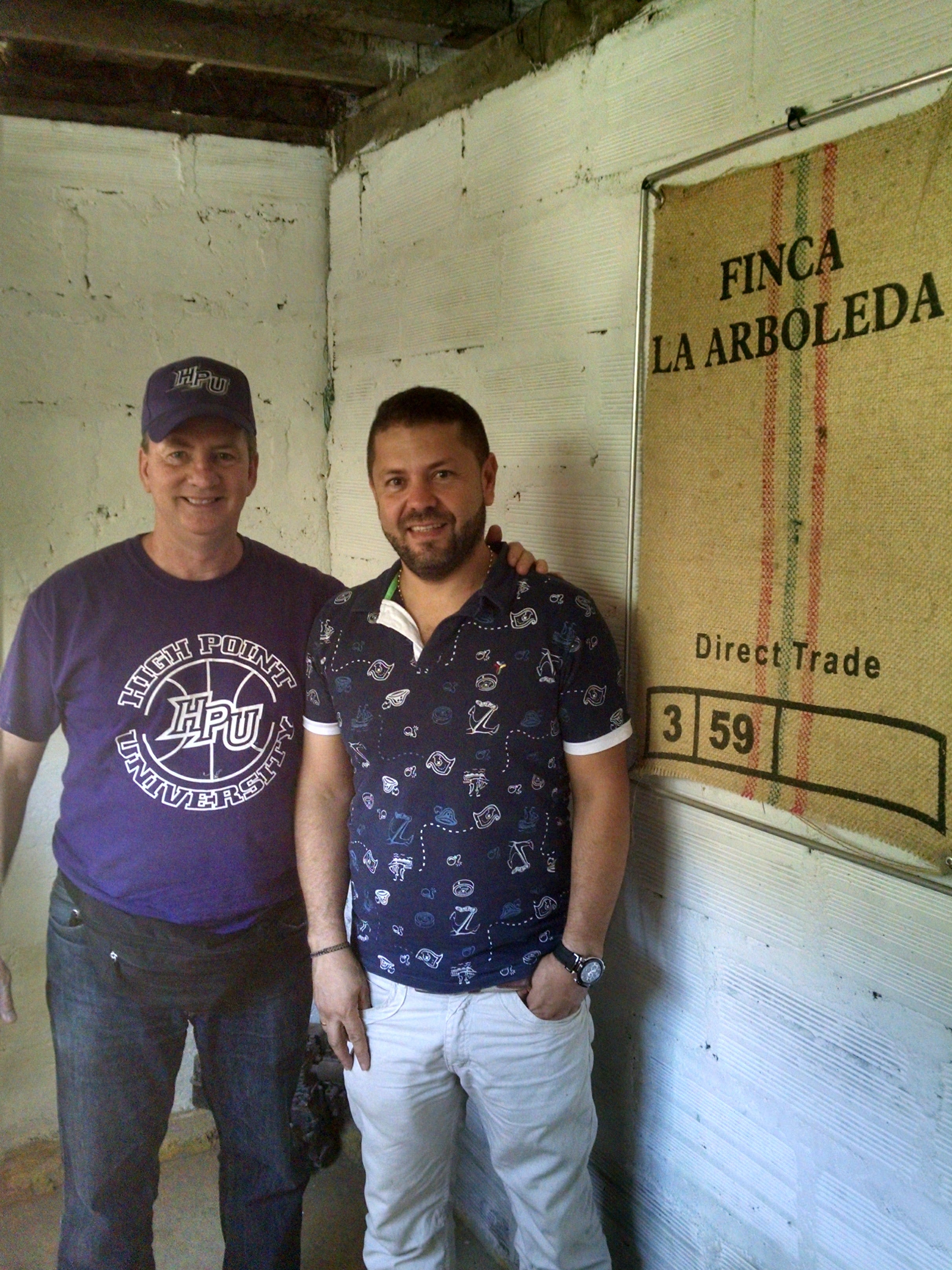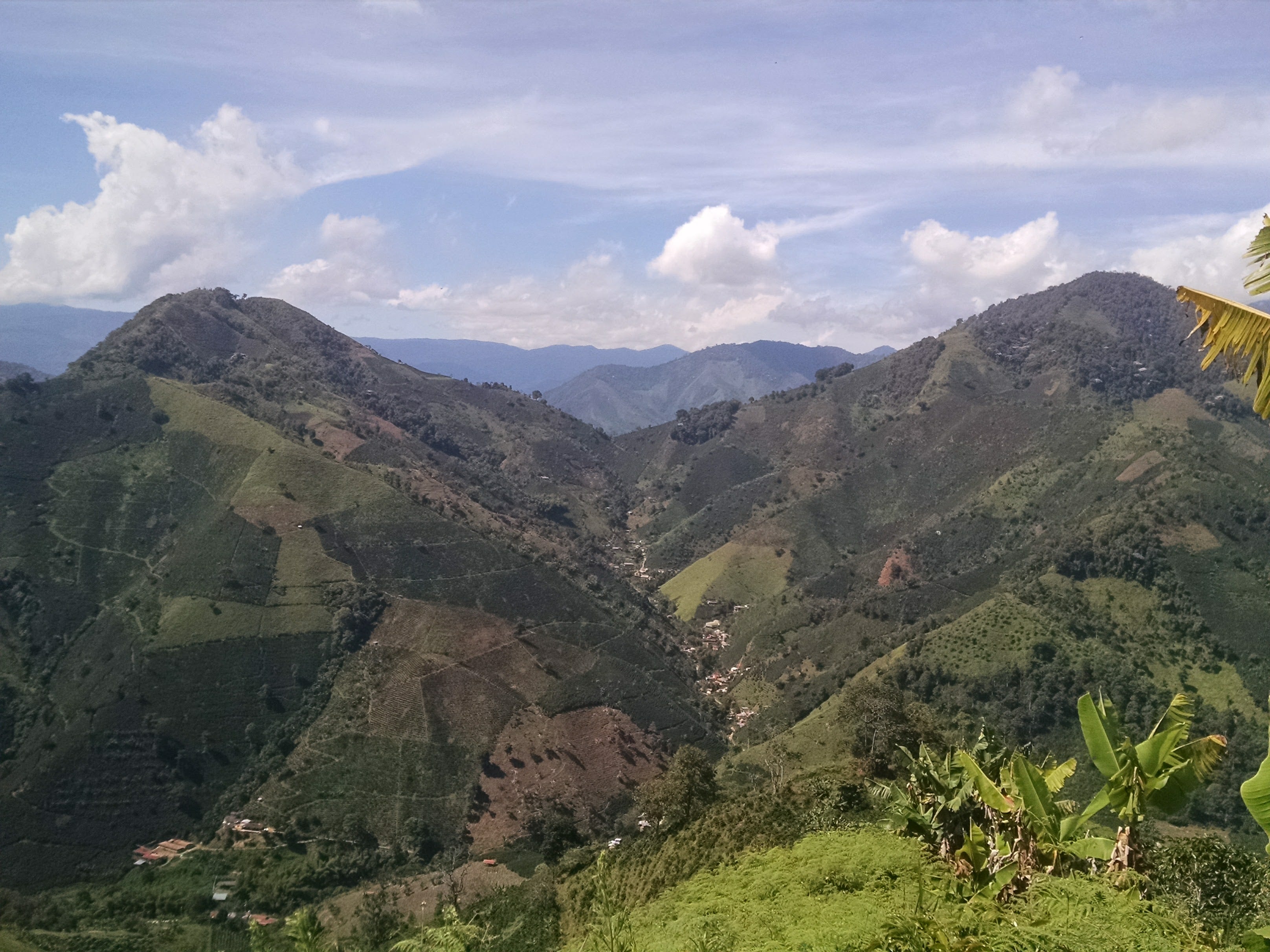
The Farmer - Gonzalo Alvarez
Our favorite Colombian coffee is a micro lot coffee (being from one specific farm). Our friend and farm owner, Gonzalo Alvarez creates a coffee legacy that starts directly from his farm, Finca La Arboleda (a Rain Forest Alliance Farm) in JARDÍN, ANTIOQUIA, COLOMBIA. We ensure equitable trade with our farmers and believe in empowering communities and those in their trade. We also believe in working with farmers that have the same values in conserving natural resources and pursuing pro-environmental benefits through their farming. And most importantly, we love working with the best. Alvarez and his father have been growing coffee for over two generations. Basically, he knows his stuff. Alvarez is a coffee bean expert and farms the best quality beans in Colombia for the best Colombian cup of coffee for you.
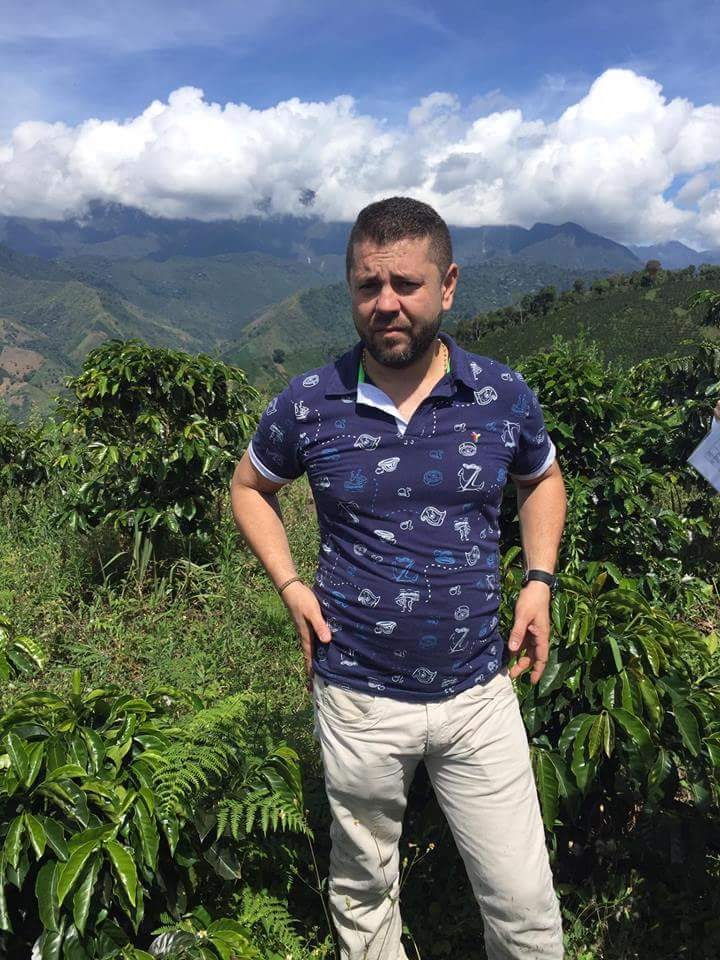
The Farm - La Arboleda
On a recent trip to the La Arboleda coffee farm in Colombia, we got a first hand tour with Alvarez himself. His farm is Rainforest Alliance Certified which means Alvarez values the environment, his product and his workers. The family started the Rainforest Alliance Certification a few years ago when they discovered a new way to conserve water for the environment and clean and filter the water used in the coffee farming.

Rainforest Alliance Certified
One of the many requirements to have a Rain Forest Alliance certified farm is that farm owners have to provide safe drinking water for all their workers. This could be in the form of Life Straw (featured below). In some cases, farms require having orange citrus trees planted among the coffee plants for hydration of the workers. Yum, we want some!

The Alvarez Family
This is Gonzalo Alvarez talking (in Spanish with English translator) about how he took over his family farm that was in disarray and has brought it back to Rain Forest Alliance certificated level.
La Arboleda
Here I am (representing my alma matter, High Point University) at Hacienda La Arboleda.

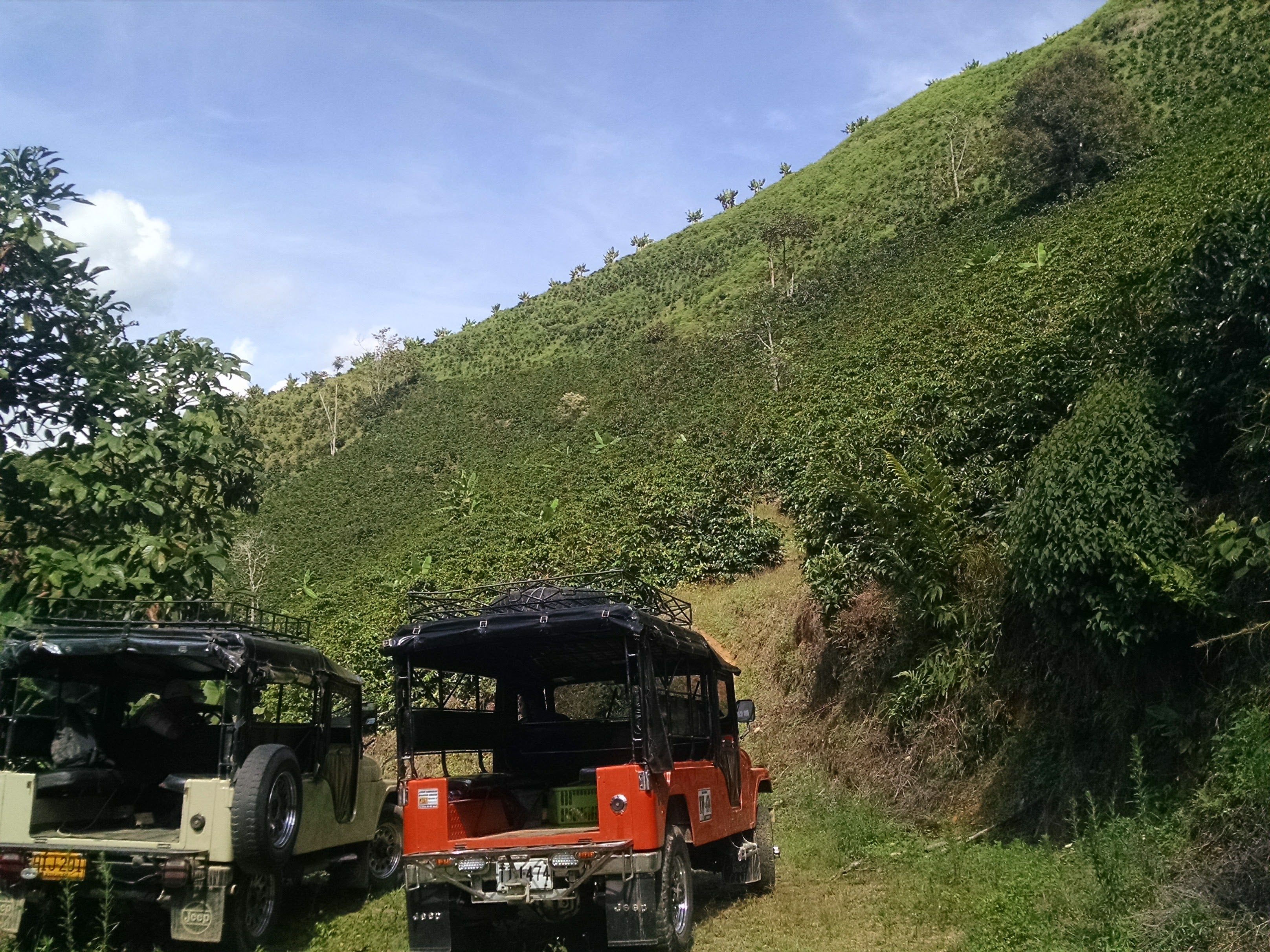

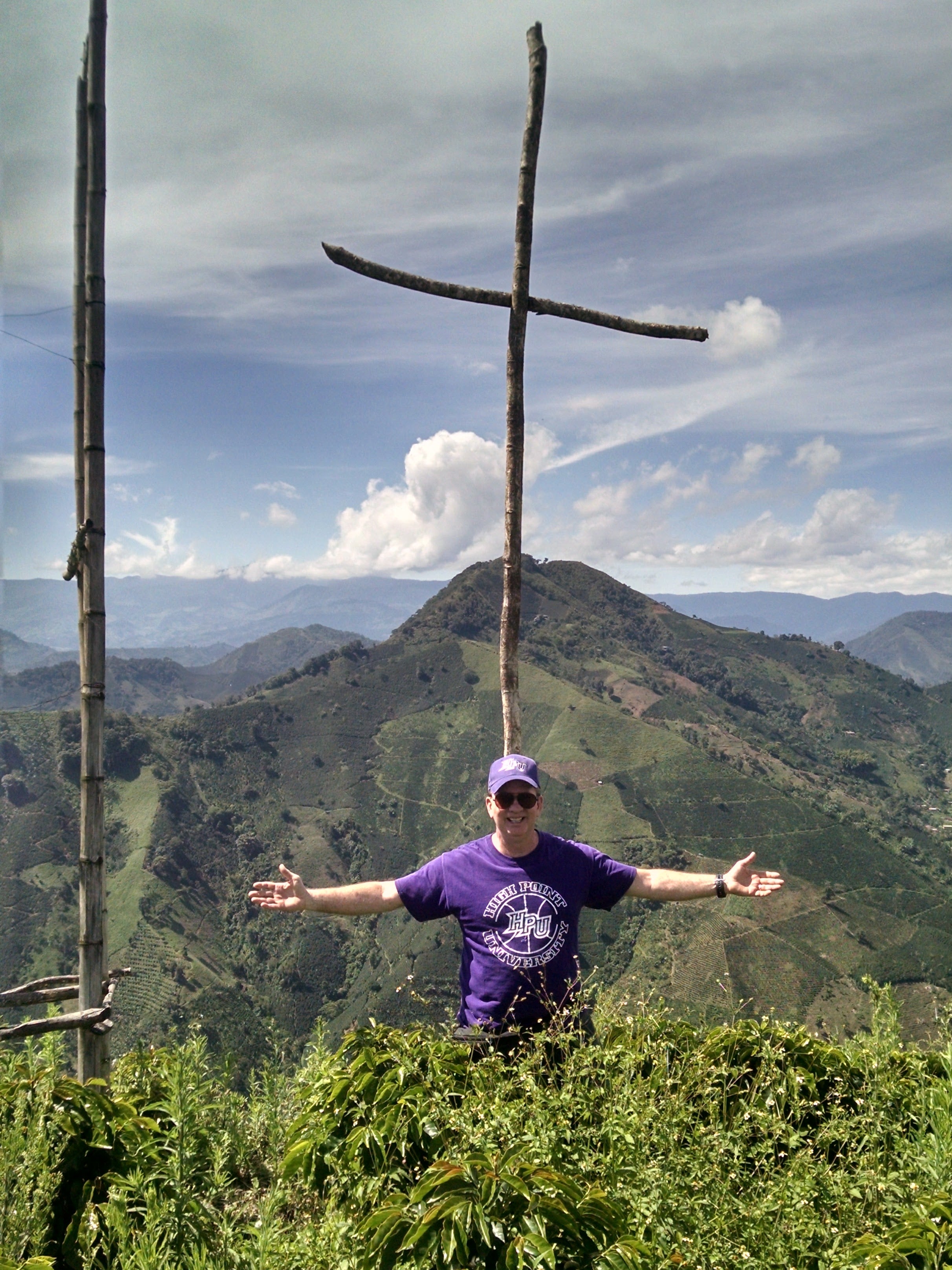
.
Relatives of Alvarez live in valley (posted below) in which some help on his farm. Photo taken from his farm at elevation of 6,100' above sea level.
.

A Look Into Coffee Farming
DRYING THE BEANS
Gonzalo's dry kiln (pictured below). Many, (not all) farmers perform a specific type of initial milling on their own farms. They don't necessarily get it completely ready for shipping, but they do some of the initial de-husking (getting down to the seeds and some drying). Some of the drying is done by laying out in sun as you will see later in this post.
.
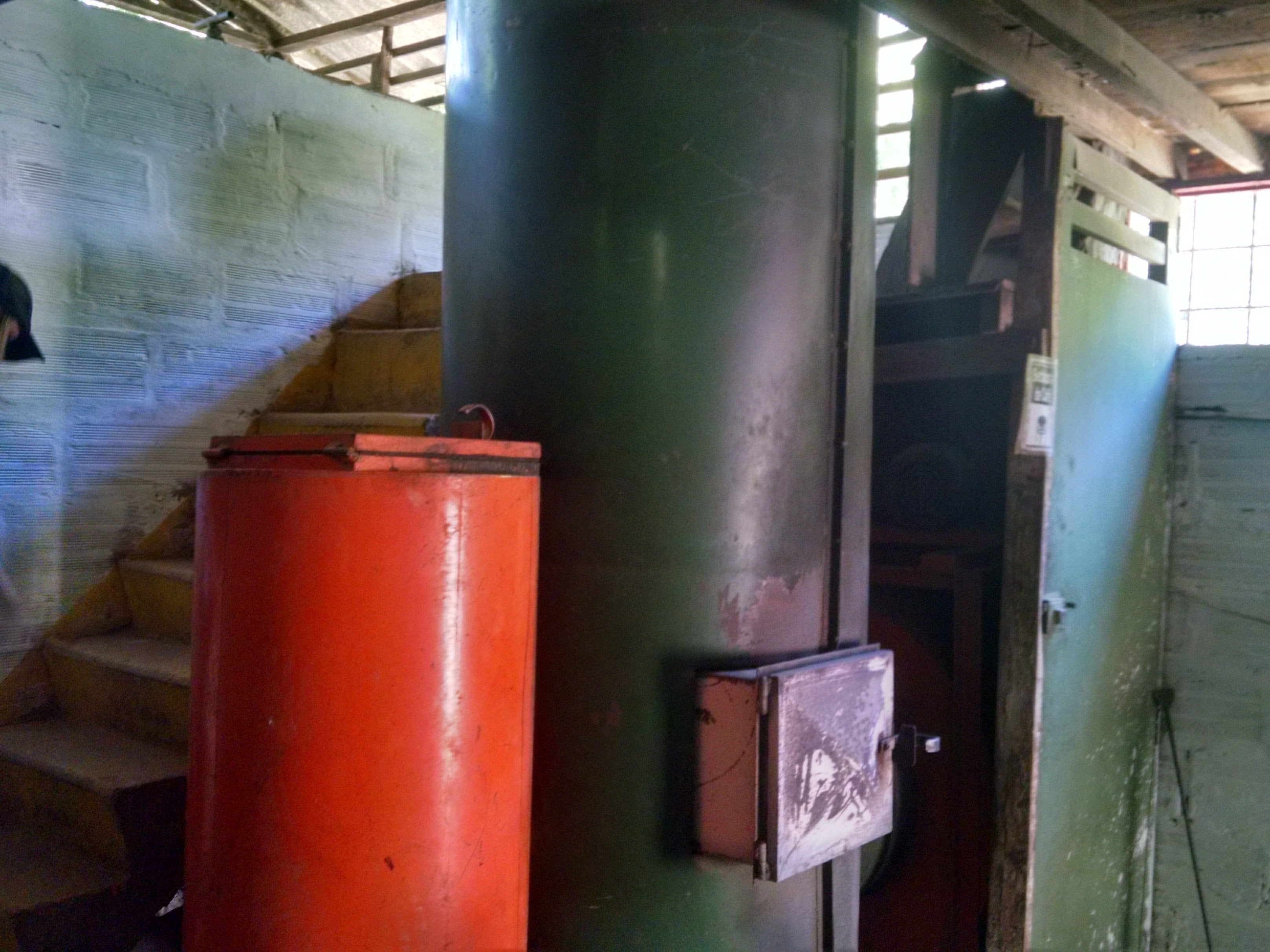
WATER SEPARATION
Gonzalo's water separating mill operation (pictured below). The floaters are not as good as the heavier cherries; therefore, they separate several times in order to get the best of the best of what they have on that particular farm.
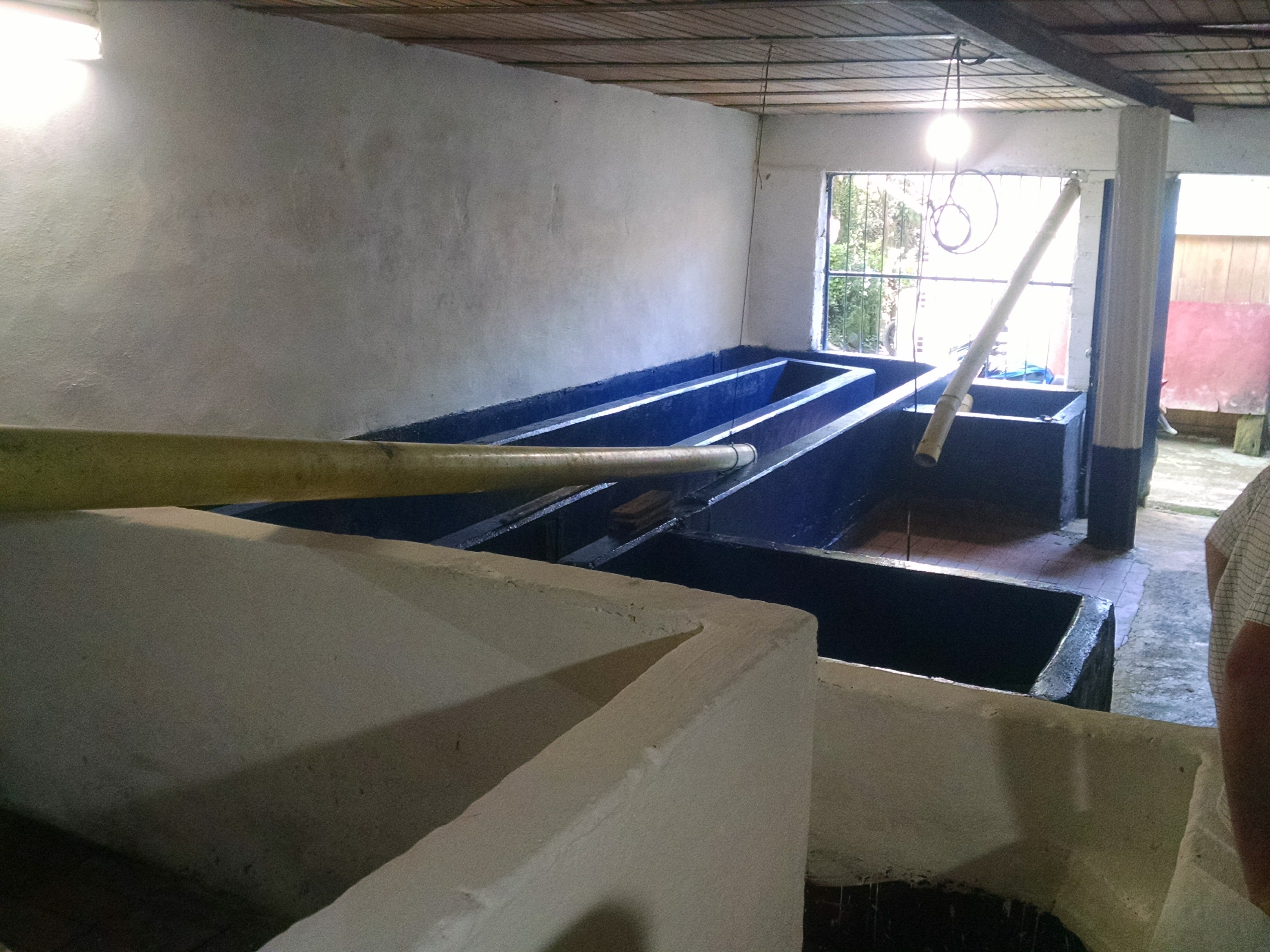
Cherry Husk Separation System
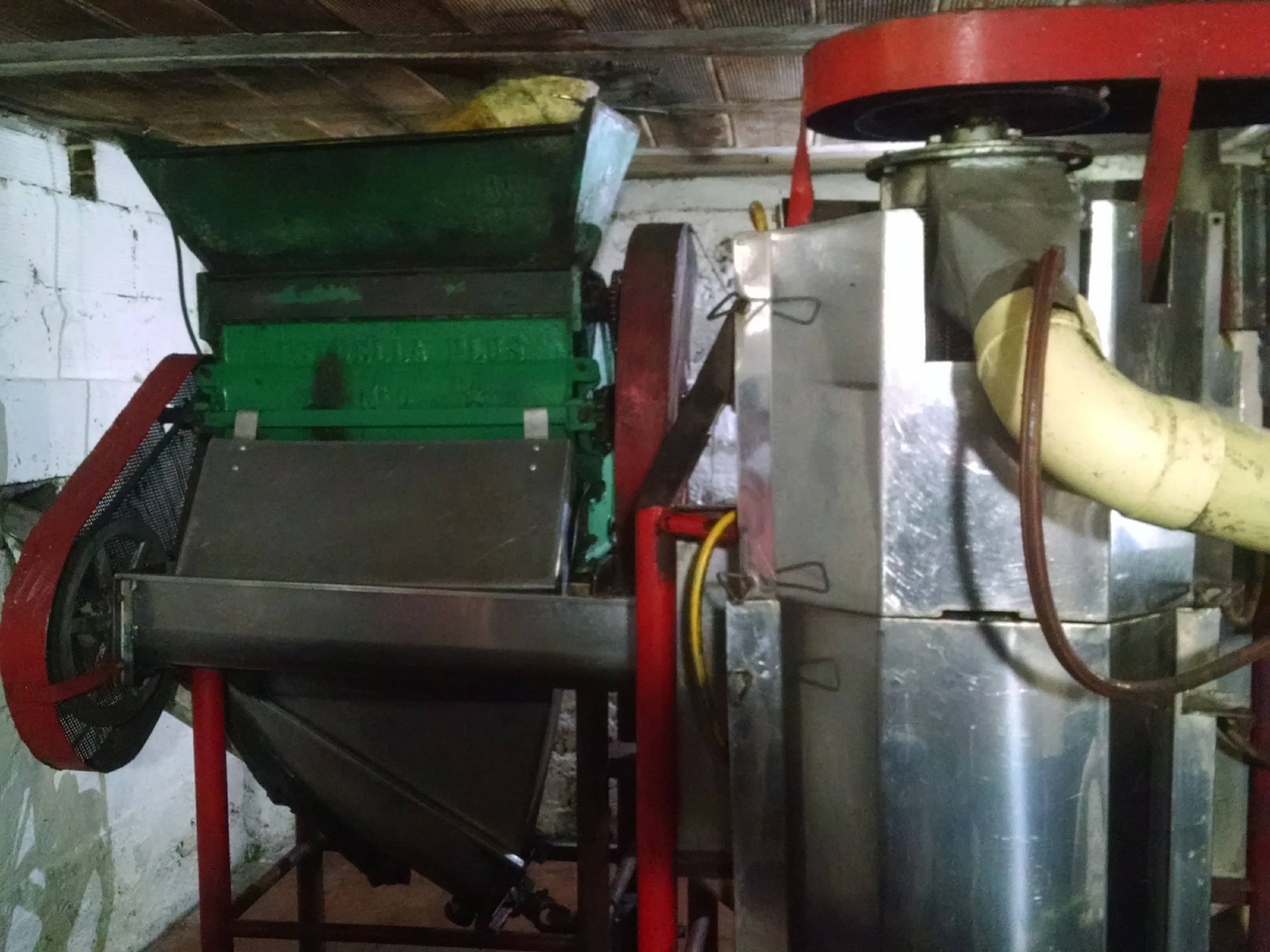
.
The mucilage that comes from cherries being de-husked goes into this container (pictured below). Water is part of this process and that water has to be cleaned up and filtered before it goes back into the land and local streams. This is one of the main requirements of being Rainforest Alliance certified.
.
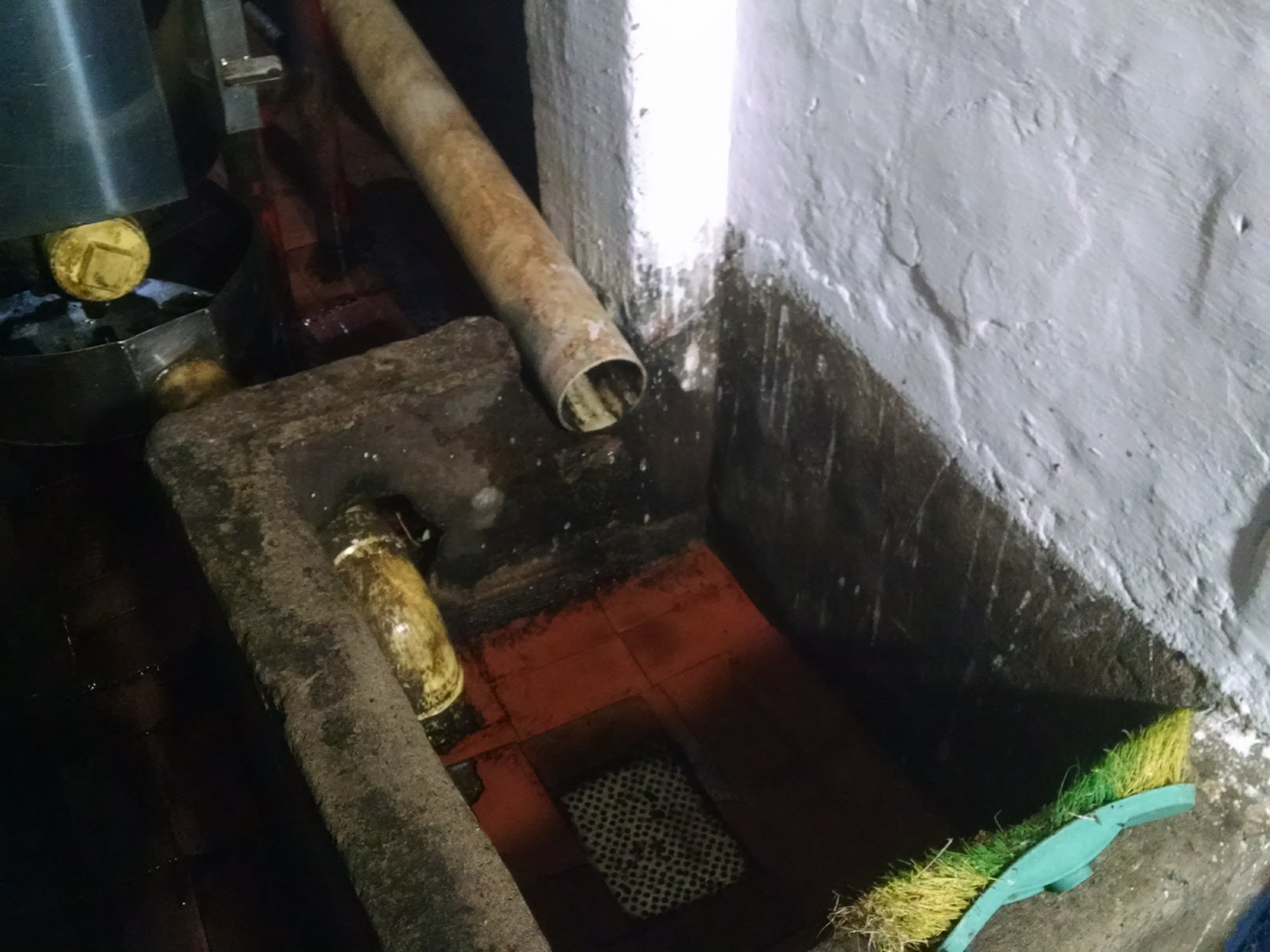
.
The solids from the mucilage then fall (pictured below). Some farmers will turn it into fertilizer compost or will sell it for being turned into Cascara (which you may have heard of). Cascara is a mix of the coffee cherry's outer layer and pulp between the cherry and it's skin. Cascara is becoming popular in sodas, lattes, syrups, and even espressos.
.
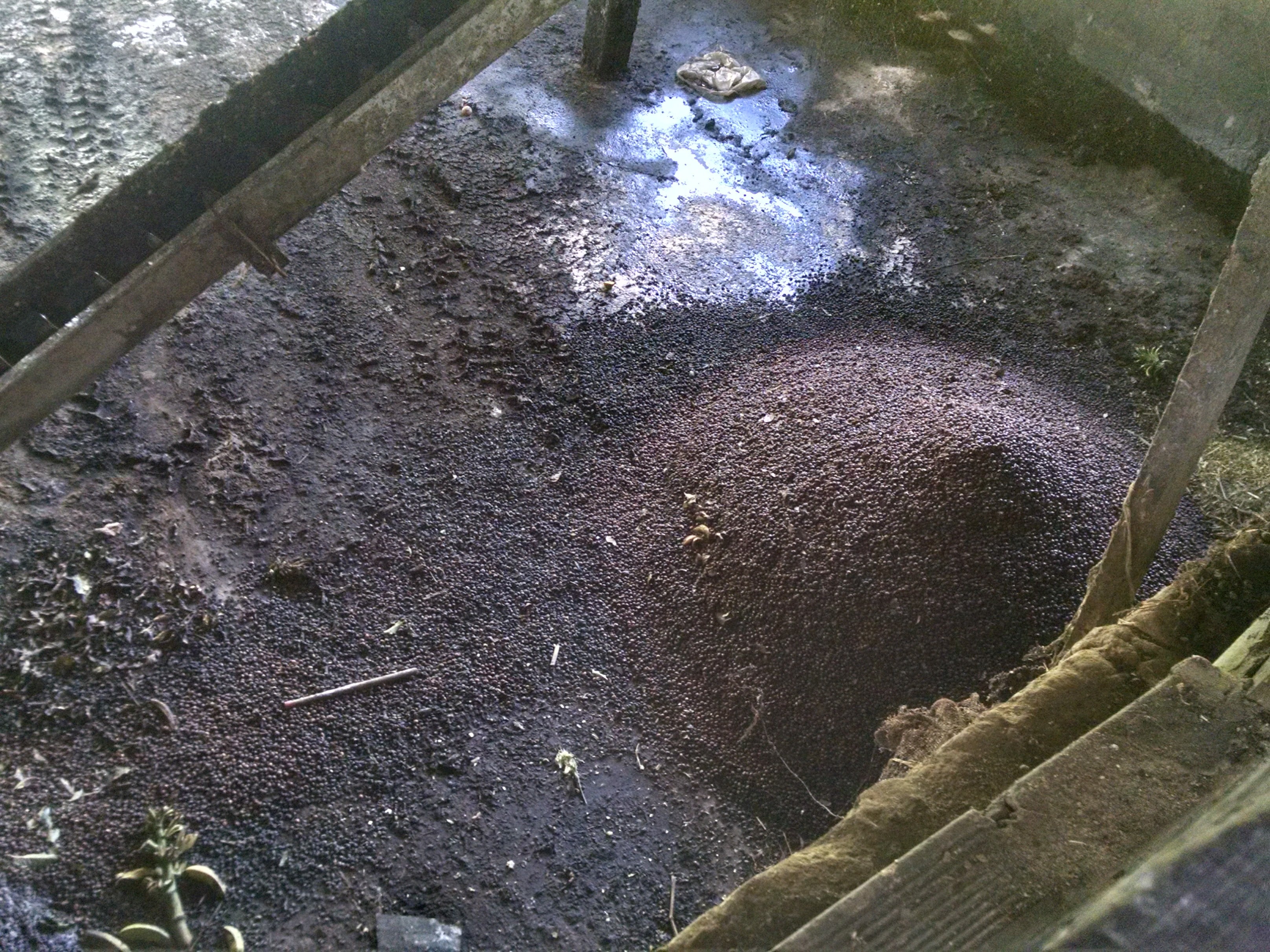
.
Gonzalo dumps his coffee cherries into this vat and gravity takes them to pulp/husk in a mechanical separator.
.

DRYING
La Arboleda's sun drying space. They are on roofs of the milling building.
.
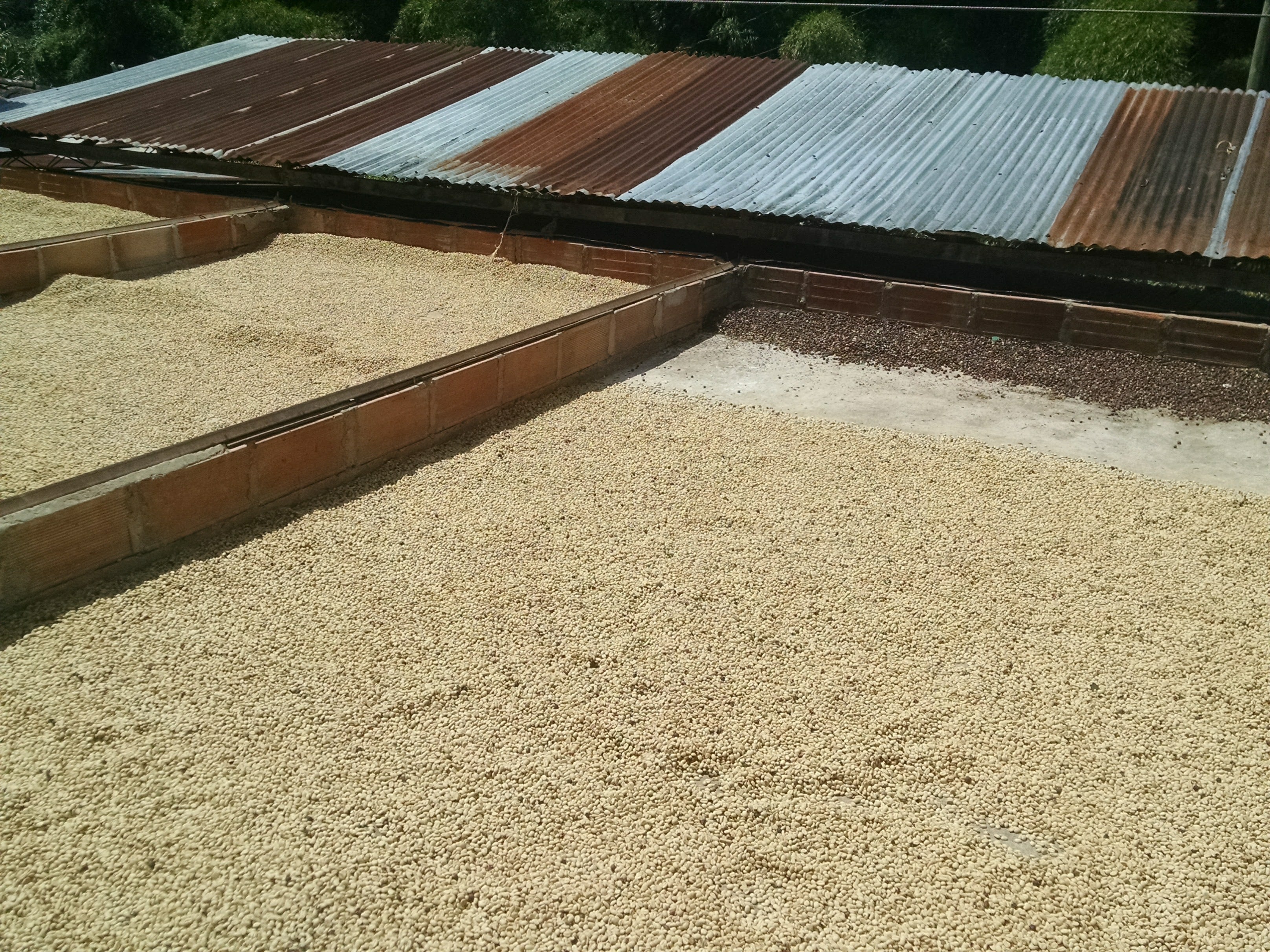
.
A close up view of the sun drying. Notice the thin layer; it has to be raked about every hour.
.

Me with Gonzalo Alvarez at his farm La Arboleda
